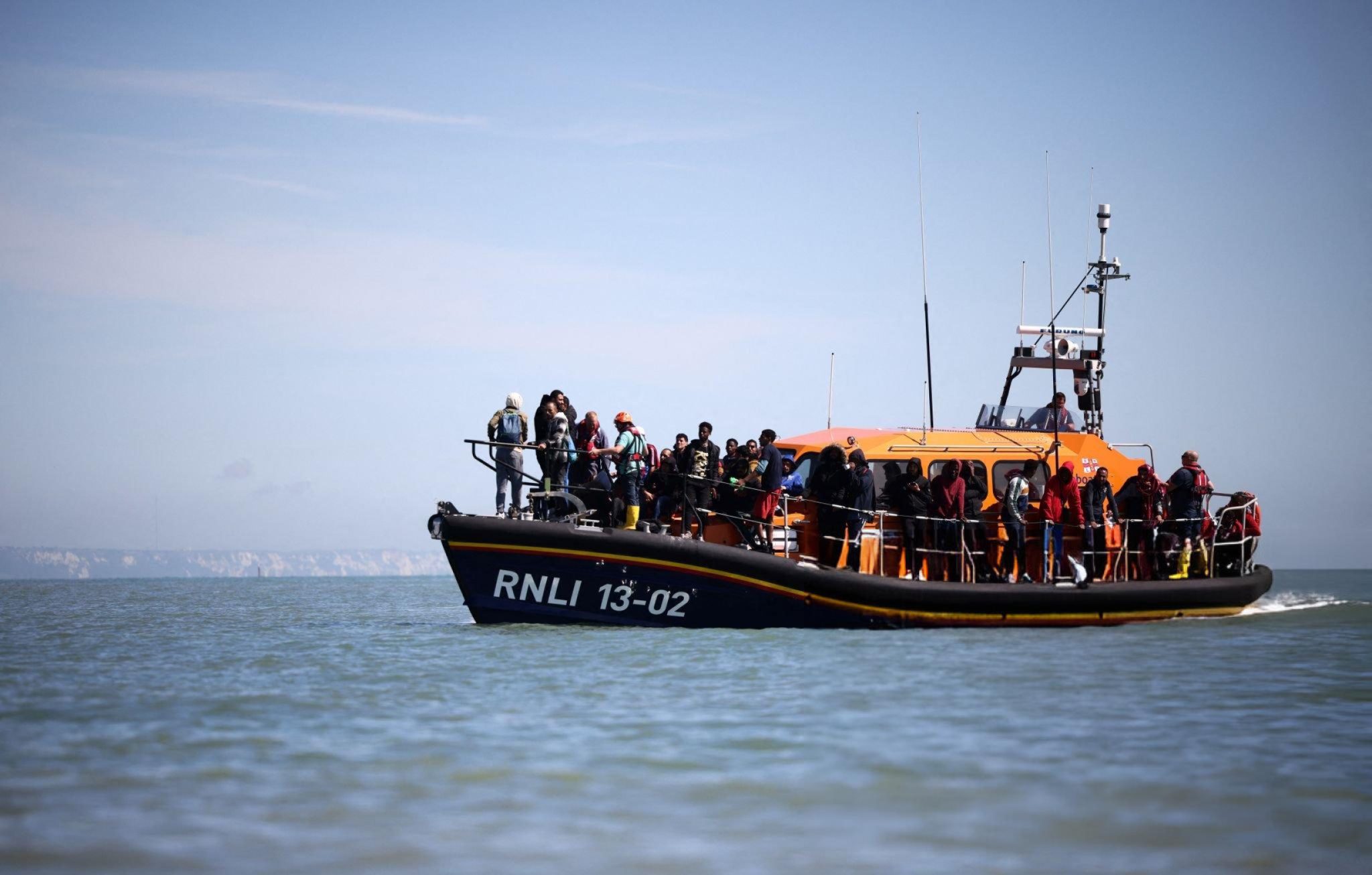RNLI lifeboats and Border Force vessels bring people ashore in Dover amid rising crossings
Dozens of migrants have arrived in the UK after making the perilous journey across the English Channel, as lifeboats and Border Force vessels brought people ashore in Dover on Tuesday morning.
Images from the Kent coastline show people wrapped in blankets, donning life jackets and covered in orange survival tarps as they were helped off an RNLI lifeboat in misty weather conditions. Others were seen disembarking a Border Force catamaran, escorted by immigration officers and medical staff.
The latest arrivals add to a rising number of small boat crossings, with Home Office figures revealing that 119 people reached British shores on Monday in just two boats. That brings the provisional total for 2025 so far to 8,183 — marking a sharp 31% increase compared to this point last year (6,265), and a 67% rise compared to the same period in 2023 (4,899).
Over the weekend, the UK saw a record number of arrivals for the first four months of the year. On Saturday alone, 656 people were detected crossing the Channel, pushing the year-to-date figure to 8,064 — surpassing the previous January-to-April record set in 2024, when 7,567 made the journey in that timeframe.
The surge in numbers comes despite government pledges to curb illegal crossings and tackle the criminal networks facilitating them. Ministers have long vowed to “stop the boats”, a key pledge of the current administration, but critics say policy failures and legal wrangling have hampered enforcement efforts.
A spokesperson for the Home Office said: “We all want to end dangerous small boat crossings, which threaten lives and undermine our border security. The people-smuggling gangs do not care if the vulnerable people they exploit live or die, as long as they pay — and we will stop at nothing to dismantle their business models and bring them to justice.”
Charities and campaigners, however, argue that the rise in crossings is a consequence of the UK failing to provide safe and legal routes for asylum seekers. Enver Solomon, chief executive of the Refugee Council, said: “These are human beings, often fleeing war, persecution and unimaginable hardship. The government needs to take a more compassionate and effective approach rather than relying on rhetoric and deterrents that clearly are not working.”
Weather conditions in the Channel have recently calmed, making it easier for smugglers to launch small inflatable boats from the French coast. The strait remains one of the busiest shipping lanes in the world, with strong tides, cold waters and dangerous overcrowding making the journey extremely hazardous.
French and British authorities continue joint patrols along the northern French coastline, but the sheer scale of the issue and the evolving tactics of criminal gangs make complete prevention near impossible. Many of the boats intercepted are found to be unseaworthy, overcrowded, and lacking safety equipment, leaving those on board vulnerable to capsizing or hypothermia.
In Dover, local residents have expressed a mixture of concern and compassion. Some say the arrivals place strain on public services, while others have volunteered to support migrants through local charities offering clothing, food, and legal guidance.
The Home Office insists it is pressing ahead with reforms aimed at deterring illegal immigration, including a controversial plan to send some asylum seekers to Rwanda for processing — a policy currently tied up in legal appeals.
With numbers continuing to rise and no immediate solution in sight, the Channel crossings remain one of the most pressing political and humanitarian challenges facing the UK this year.






